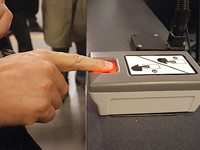H-1B visa applicants to face limitation
US authorities said Tuesday they had received too many applications for a visa program for skilled workers for the coming year, meaning a random lottery will determine the winners.

The surpassing of the 65,000 annual quota for the H-1B visa program had been widely expected by business leaders, who argue the cap is too low and hurts their ability to hire skilled workers.
US Citizenship and Immigration Services, on announcing the quota had been met, did not say how many applications it had received for the fiscal year starting October 1.
"Due to the high number of petitions, USCIS is not yet able to announce the precise day on which it will conduct the random selection process," a statement from the agency said.
An additional cap of 20,000 visas reserved for graduates of US universities was also met, meaning those will also be allocated by lottery, immigration officials said.
US business leaders have urged Congress to raise the limits, arguing that the nation is running short of the talent it needs to remain competitive. They said this was the second year in a row the cap had been met immediately, forcing companies to wait until next April to apply for visas that would be effective in October 2009.
"US employers deserve better than a random lottery to determine if they can hire the highly educated candidates they need," said Robert Hoffman, an executive at Oracle and co-chair of Compete America, which has lobbied for easier immigration policies.
"Congress has failed to address the problem as US universities graduate highly educated individuals who leave to work in competitor nations. This madness must end this year."
Yet lawmakers have been cool to increasing the quotas for H-1B visas at a time of rising unemployment.
Critics of the program argue that loopholes are being exploited by overseas firms, which send their nationals to the United States at low wages and deprive Americans of employment.
Senator Charles Grassley said he would oppose higher limits unless they contained reforms to protect US workers.
"We can't let powerful outside interests cloud our view of the harsh reality that highly skilled Americans are being passed over for jobs for cheaper, foreign labor," Grassley said in a statement last week.
The H-1B, launched in 1990, is a non-immigrant visa in the United States under the Immigration & Nationality Act. It allows U.S. employers to employ foreign guest workers employed in specialty occupations. The regulations define a “specialty occupation” as requiring theoretical and practical application of a body of highly specialized knowledge in a field of human endeavor including, but not limited to, architecture, engineering, mathematics, physical sciences, social sciences, medicine and health, education, law, accounting, business specialties, theology, and the arts, and requiring the attainment of a bachelor’s degree or its equivalent as a minimum. Likewise, the foreign worker must possess at least a bachelor’s degree or its equivalent and state licensure, if required to practice in that field. H-1B work-authorization is strictly limited to employment by the sponsoring employer.
The program is valid up to six years, at the end of which guest workers must obtain a permanent residency or return home. A large number come from Asia, especially India.
Subscribe to Pravda.Ru Telegram channel, Facebook, RSS!





